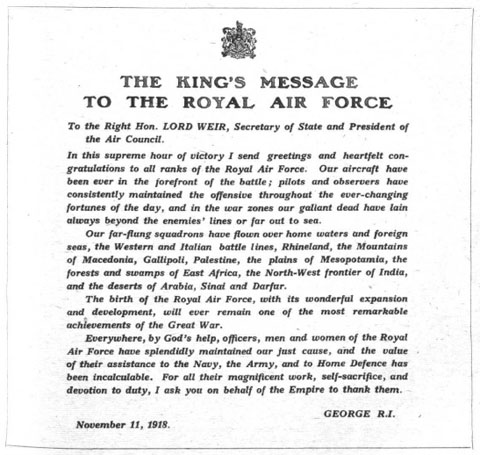[Cross-posted at Revise and Dissent.]
I recently rewatched one of my favourite science fiction films, The Day the Earth Stood Still — the 1951 original, of course, not the currently-screening remake (which I have yet to see, but tend to doubt that it will improve over the original in any area other than special effects). I can’t remember when I last saw it, but it must have been before I started the PhD because otherwise the climactic scene would have leapt out out me and smacked me in the face, as it did the other day … (Warning: spoilers ahead.)
The whole scene is shown above, but I’ll quote the speech made by the alien Klaatu to the leading scientists of Earth (emphasis added):
The Universe grows smaller every day and the threat of aggression by any group, anywhere, can no longer be tolerated. There must be security for all — or no one is secure. This does not mean giving up any freedom except the freedom to act irresponsibly. Your ancestors knew this when they made laws to govern themselves, and hired policemen to enforce them. We of the other planets have long accepted this principle. We have an organization for the mutual protection of all planets, and for the complete elimination of aggression.
The test of any such higher authority, of course, is the police force that supports it. For our policemen, we created a race of robots. Their function is to patrol the planets, in space ships like this one, and preserve the peace. In matters of aggression we have given them absolute power over us. At the first sign of violence they act automatically against the aggressor. The penalty for provoking their action is too terrible to risk.
The result is that we live in peace, without arms or armies, secure in the knowledge that we are free from aggression and war — free to pursue more profitable enterprises. We do not pretend to have achieved perfection, but we do have a system, and it works.
So the robot Gort is an interplanetary policeman, whose function is to deter and punish any breaches of the peace with the use of force. The reason why this made me sit up straight is that it’s yet another post-Hiroshima, space-based rehash of the international air force idea. (See, for example, Robert A. Heinlein’s Space Cadets, published in 1948.) The international air force was a popular topic of discussion in the interwar years; the basic idea being that national air forces would be disbanded, and instead all countries would contribute towards a multinational force which would use airpower for collective security. (Exactly how was a matter for debate; some writers contended that it would need to use the full power of the knock-out blow, while others thought that it could get by with just fighters, since any aggressors would only have converted airliners to use as fighters, relatively easy to shoot down.)
The language and ideas of the international air force proponents are very much like Klaatu’s: they too used the police analogy extensively, and I can easily imagine somebody in the 1930s saying ‘There must be security for all — or no one is secure’. Here’s William McDougall, a British psychologist, writing in 1927:
The institution of such an international air-force might, then, well lead to general abandonment of national armaments, and might initiate an era of universal peace. For, given the condition that the International air-force were the only one in existence, resistance to it would be hopeless, and no nation would attempt it.1
Klaatu would have understood where McDougall was coming from; it’s the same hope for an end to war, now motivated by the fear of nuclear weapons instead of bombers and expanded to an interplanetary scale rather than an international one. Obviously the point was not so much that Earthlings needed to worry about aliens interfering in our affairs, more that we needed to set up an international police force of our own.2
But I do wonder just how credible a threat is a fleet of flying saucers flown by robots who can be pacified simply by speaking the words ‘Klaatu barada nikto‘?
![]() This work is licensed under a Creative Commons Attribution-NonCommercial-NoDerivatives 4.0 International License.
Permissions beyond the scope of this license may be available at http://airminded.org/copyright/.
This work is licensed under a Creative Commons Attribution-NonCommercial-NoDerivatives 4.0 International License.
Permissions beyond the scope of this license may be available at http://airminded.org/copyright/.
- William McDougall, Janus: The Conquest of War (London: Kegan Paul, Trench, Trubner & Co., n.d. [1927]), 126-7. [↩]
- The idea doesn’t appear in the 1940 short story by Harry Bates, ‘Farewell to the master’, so it was presumably introduced by the scriptwriter, Edmund North. Bates and North were both Americans. [↩]



Pingback: Centauri Dreams » Blog Archive » Centauri Planets: Year-End Thoughts
If only we’d listened to those visionaries. Then the whole world would be as peaceful as Iraq is today!
An international air force makes me think of Wells “Wings Over The World”.
Their flying wings with the bombs of peace would subdue any rogue nations.
What would go in a bomb of peace? Anthrax? Napalm? Or just good old fashioned high explosives?
(Trick question, I know. The “international police force” was supposed to drop leaflets and then high explosive, so as to blow up buildilngs and leave the people standing….)
LSD, dude… peace and love!
Ahem.
Paul:
Well spotted — The Shape of Things to Come certainly ties in with the international air force idea, although as usual it’s Wells’ own take on it (rather than preventing war, the world has to be ruined by war first …)
Erik and Jakob:
No comment!